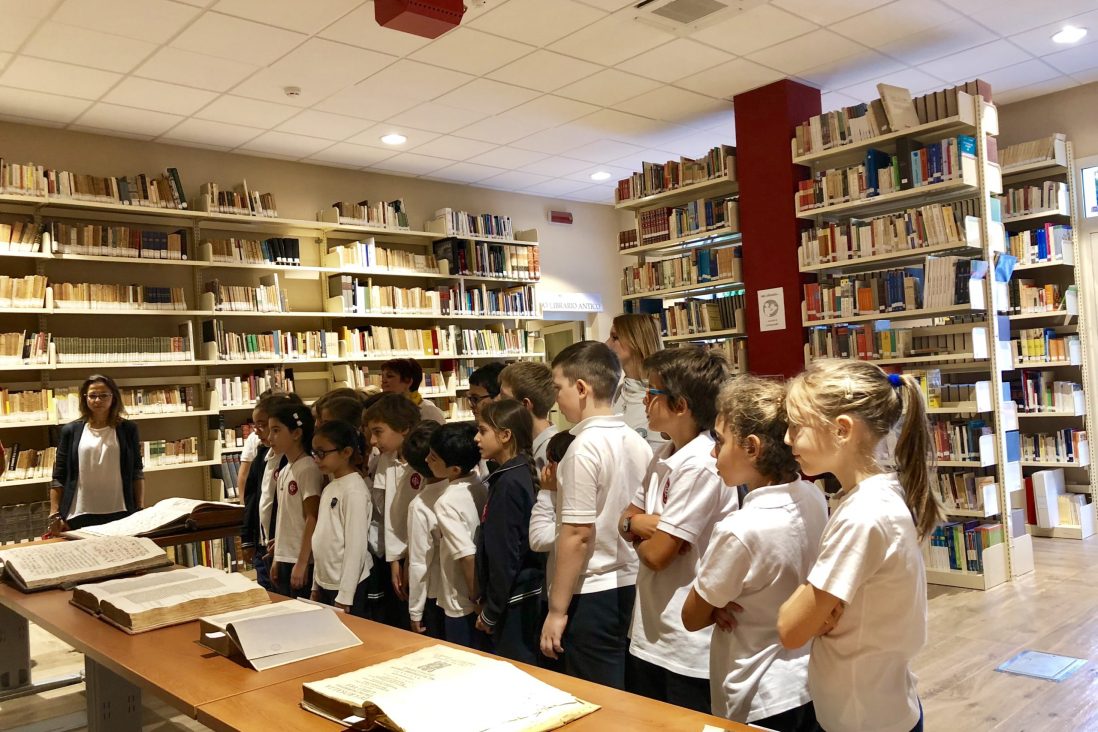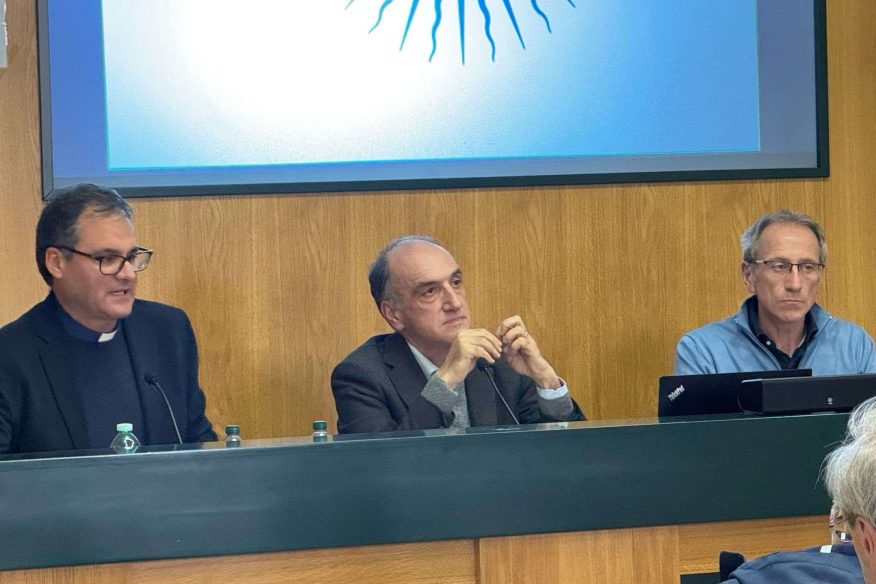The treasure of the Antique Books Fund

The conservation process of the Antique Library Fund which consists of 22 thousand volumes, kept at the Gonzaga Institute in Palermo has been completed. “This heritage will give the opportunity to the younger generations to move forward on the shoulders of giants. At a time when we are looking towards the future with trepidation, we relaunch it on the foundation of a solid and beautiful past” Fr. Vitangelo Denora, the director, states.
Inside the rooms of the library of the Gonzaga Institute, an area can be found dedicated completely to a third of the ancient book collection of the Society of Jesus. The collection was formed following some administrative, pastoral, charitable and educational changes which in recent decades, have taken place within religious houses, theological schools, Jesuit institutes and seminaries, as well as after the closure of certain Jesuit houses and Institutes, thus determining the need to transfer certain assets elsewhere. These assets always included a library with extensive collections of ancient books. As a result of these movements and changes, tens of thousands of books collected over the years have been transferred to places where they could be stored and preserved, thus constituting three huge collections of ancient books, one in Gallarate, at the Aloysianum Institute, another in Naples at the ‘Gesù Nuovo’ Community, and a third in Palermo, at the Gonzaga Campus.
The books that have been collected in three different cities following the closure of certain Houses in the north, centre and south of the Province has actually led to the creation of three distinct libraries which, through the conservation and enhancement project, we have decided to bring together and establish one “Ancient Book Fund” which, considering only the books published by 1830, presently amounts to over 100,000 books.
The cataloguing of the books is still being implemented as the ancient books are still being transported to the three areas of the Province. Such a patrimony of books, consisting of incunabula and numerous sixteenth-century books, is of absolute importance and constitutes an extraordinary collection which is comparable to the ancient collections of the great historical libraries; that is, it represents an event of great cultural importance and, due to its intrinsic characteristics, has a unique historical and documentary significance. This huge and precious heritage is accessible through the online catalogue. A part of this heritage, which has been selected precisely because of the rarity and value of certain texts of some of the literary works of the Jesuits and the history of the Society of Jesus, has been digitized.
Istituto Gonzaga Library
The Gonzaga Institute Library is a private library open to the public. It has scholastic and cultural purposes and was founded in 1923 at the dawn of the Gonzaga Institute. Currently its patrimony counts 25000 volumes, as well as numerous magazines. It is open to the public for 20 hours a week and is closed on Saturdays and in coincidence with vacations and summer vacations of the staff. In the last few years, the library has had a particular increase because it has received numerous antique books, ranging from 1487 to 1830, from various Sicilian Jesuit houses, reaching today the figure of 23500 volumes, constituting the important patrimony of the Fondo Antico, which has been entirely catalogued. Some of the most prestigious texts have been digitized and a planetary scanner has been used to continue the digitization process in order to spread knowledge and culture to as many people as possible. Of particular interest is to note that in the Jesuit site the texts or authors of the Fondo Antico searched for give their existence or not in the parallel Jesuit libraries of Gallarate and Naples. The operation of cleaning up the books, carried out by the Eum Province with the Institute and experts from Tecnoambiente has a profound meaning. “Twice in ten years there has been disinfestation and dusting of the books. The goal is to put this heritage at the service of the younger generations and the city of Palermo,” said Father Vitangelo Denora, director general of the Gonzaga Institute. “The book is an object but above all an experience in which we read so much of the history of men and their lives. It is a civic and moral duty to preserve the book heritage towards the past and the new generations.”

